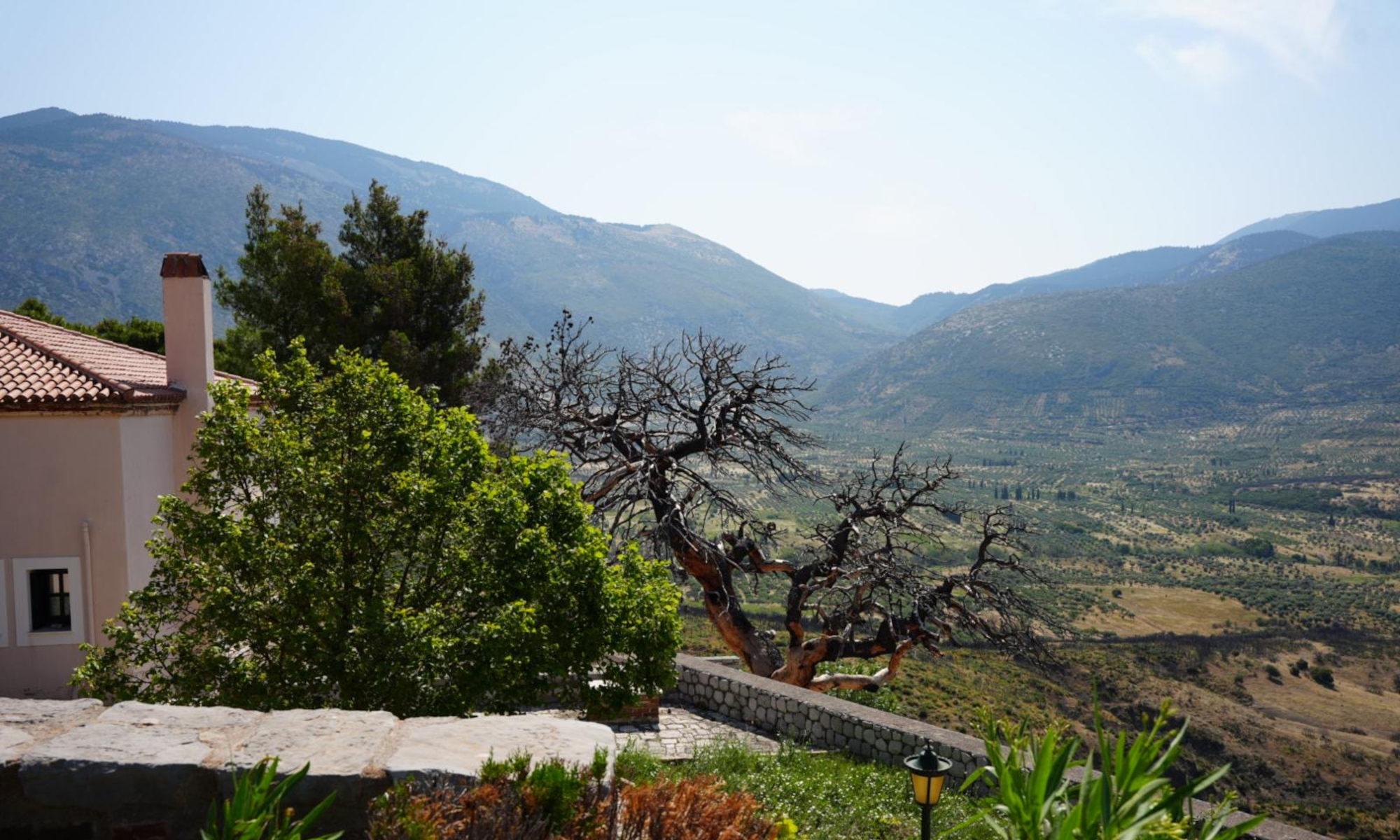The story of one farmer’s fight against the Greek island’s ongoing drought
by Isabella Dail
Stelios Vathrakokoilis awakens at 6:00 AM to spray the fields with pesticides and weed killers. The 60-year-old works a potato farm on the island of Naxos, Greece, alongside a few other employees.
His days are long. He often goes to bed after midnight so he can first water the crops in the evening. With such a small workforce, he can spend 10 hours in the fields per day during the harvest season.
In recent years, Vathrakokoilis’s hard labor has only gotten harder as heat and drought threaten Naxos’s agricultural industries. In the late morning of June 24, the sun already blazed down on the tractor that trundled across the field and scooped potatoes into plastic bins. Vathrakokoilis seemed unconcerned that the truck he leaned against was searing to the touch. The prickly pear cacti dotting the field’s perimeter occasionally turned grey and withered.
Vathrakokoilis relies on farming for his livelihood. Last year, he couldn’t harvest any potatoes at all.
Naxos was an island once known for its staple crops. Now, as the agricultural industries are crumbling to heat and drought, a growing tourism industry has brought in new visitors, replaced potato fields with swimming pools, and disrupted local economies and lifestyles.
The island’s largest reservoir is desiccated, and a shortage of rainfall persists. Naxos’s average temperature in the summer has risen by about 4 degrees in the last 50 years. Due to the lack of available fresh water, sea water fills the wells used to irrigate farmland, damaging crop health.
“Water scarcity is a very big problem,” said Giorgios Lialios, an environmental journalist at Greece’s leading newspaper.
The drought isn’t Vathrakokoilis’s only concern. He says that the remaining water on the island isn’t directed primarily to him. Instead, it’s going to the tourism industry.
Naxos has become a prime tourist destination, boasting the ruins of the temple of Apollo, a series of resorts decked with quaint villas, and the freshness of its remaining crops. While farmers complain of little water, swimming pools materialize across the island, and trendy resorts maintain expansive gardens. Employees in the industry argue that tourism is essential for the Naxian economy, even agricultural sectors.
“If the hotels do not work in the summer, the farmers do not work in the winter,” Irene Lianou, the Reservations Manager at the Lianos Village Hotel, said.
In fact, the hotel has married agriculture and tourism, opening a farm that both supports the hotel’s kitchen and appeals to patrons. They offer zucchini, nectarines, and–of course–potatoes from their farm for customers.
“All the jobs here, on this island, are involved in tourism,” Lianou said.
Yet the agricultural industry on a whole seems impossible to sustain in light of the island’s current climate conditions. According to Dimitris Kapounis, President of the Union of Agricultural Cooperatives of Naxos, Naxos once produced over 13,000 tons (12,000,000 kilograms) of potatoes annually. In recent years, that number has plummeted to somewhere between 2 to 3 tons.
Vathrakokoilis believes that the challenges facing farmers could improve, but it would require local authorities to step in. He hopes that a system which cleans sewage water for irrigation will be implemented. For now, he fears the well he uses will dry up within the next week. If the situation doesn’t improve, he may be unable to continue doing the job he loves.
If a solution to the drought doesn’t occur in the land once known for its potatoes, Vathrakokoilis believes that “in a few years there will be no agricultural production on this island.”
